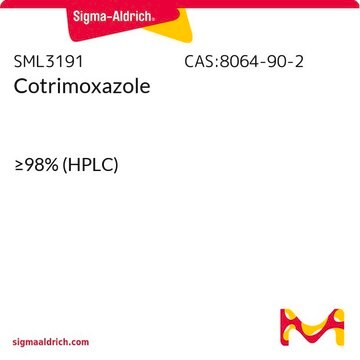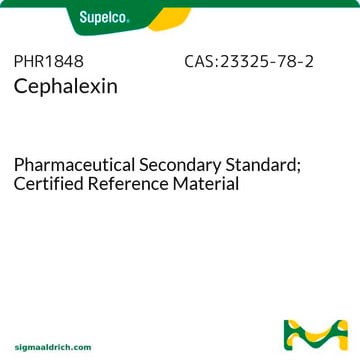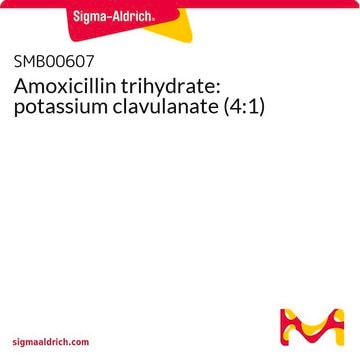A2487
Cotrimoxazole, Ready Made Solution
100 mg/mL in DMSO
Synonym(s):
Trimethoprim-Sulfamethoxazole, TMP-SMX
About This Item
Recommended Products
form
liquid
Quality Level
concentration
100 mg/mL in DMSO
color
colorless to faint yellow
antibiotic activity spectrum
Gram-negative bacteria
Gram-positive bacteria
fungi
parasites
Mode of action
DNA synthesis | interferes
shipped in
dry ice
storage temp.
−20°C
InChI
1S/C14H18N4O3.C10H11N3O3S/c1-19-10-5-8(6-11(20-2)12(10)21-3)4-9-7-17-14(16)18-13(9)15;1-7-6-10(12-16-7)13-17(14,15)9-4-2-8(11)3-5-9/h5-7H,4H2,1-3H3,(H4,15,16,17,18);2-6H,11H2,1H3,(H,12,13)
InChI key
WZRJTRPJURQBRM-UHFFFAOYSA-N
Application
Biochem/physiol Actions
Packaging
Preparation Note
Other Notes
Signal Word
Warning
Hazard Statements
Precautionary Statements
Hazard Classifications
Aquatic Chronic 3 - Repr. 2
Storage Class Code
12 - Non Combustible Liquids
WGK
WGK 2
Flash Point(F)
Not applicable
Flash Point(C)
Not applicable
Certificates of Analysis (COA)
Search for Certificates of Analysis (COA) by entering the products Lot/Batch Number. Lot and Batch Numbers can be found on a product’s label following the words ‘Lot’ or ‘Batch’.
Already Own This Product?
Find documentation for the products that you have recently purchased in the Document Library.
Customers Also Viewed
Our team of scientists has experience in all areas of research including Life Science, Material Science, Chemical Synthesis, Chromatography, Analytical and many others.
Contact Technical Service












